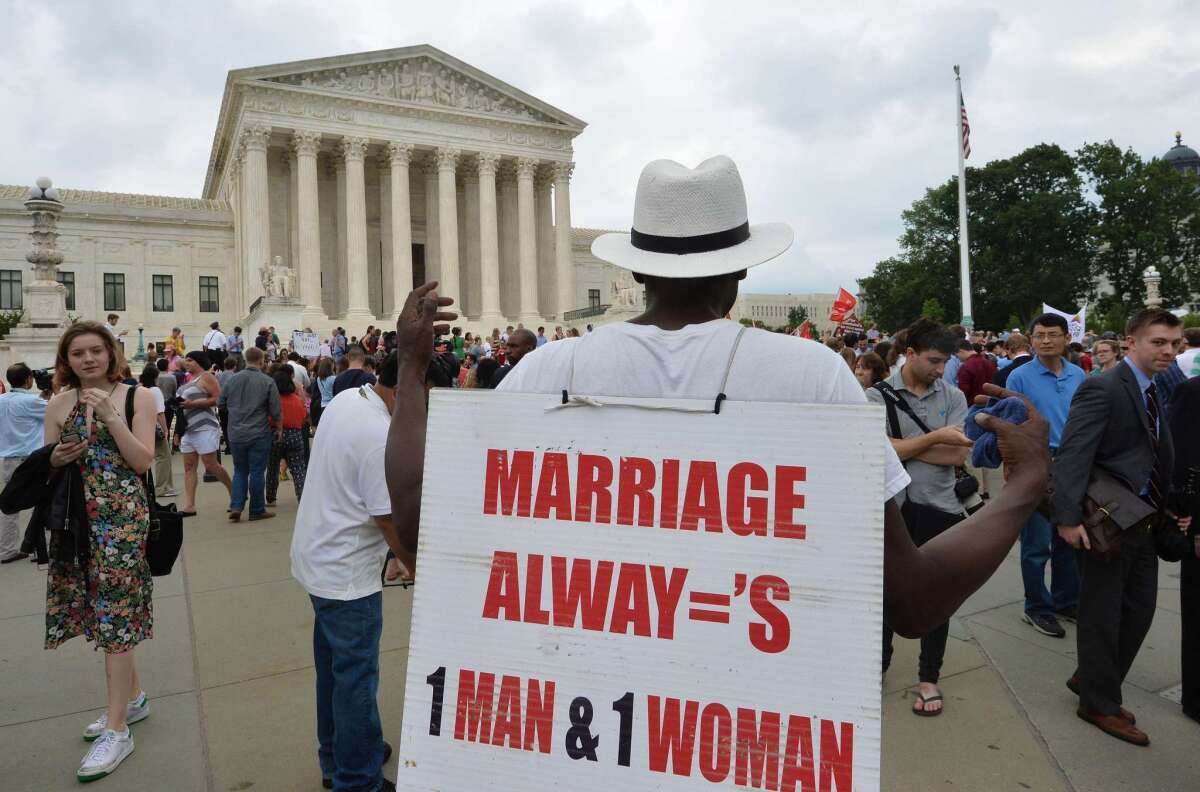Will a religious institution lose tax-exempt status for refusing to marry a same-sex couple?

A man carries a protest poster outside the Supreme Court after the justices’ historic decision on same-sex marriage was announced Friday.
A hot question in conservative circles for months gained steam Friday with the Supreme Court’s landmark decision on same-sex marriage. The concern: Could a church-related institution, such as a college, lose its tax exemption for refusing to give equal treatment to same-sex couples?
While it’s possible that issue may arise down the road, we’re a long way from that now.
The precedent would be the case of Bob Jones University in South Carolina, which lost its tax exemption because its official policy was to expel anyone who dated a person of another race. The Nixon administration first threatened to take away the school’s tax exemption in 1970. The IRS didn’t actually act until January 1976. The Supreme Court finally ruled on the case in 1983, which was 16 years after the court in Loving vs. Virginia struck down laws against interracial marriage.
But a minister refusing to perform a same-sex marriage is a very different issue. The Supreme Court’s ruling in Bob Jones emphasized that its ruling applied “only with religious schools — not with churches or other purely religious institutions.” The First Amendment shields clergy members from government interference with their religious duties.
Here’s what Justice Anthony M. Kennedy’s opinion today said on that point:
“Finally, it must be emphasized that religions, and those who adhere to religious doctrines, may continue to advocate with utmost, sincere conviction that, by divine precepts, same-sex marriage should not be condoned. The First Amendment ensures that religious organizations and persons are given proper protection as they seek to teach the principles that are so fulfilling and so central to their lives and faiths, and to their own deep aspirations to continue the family structure they have long revered.”
MORE ON THE RULING:
Read the decision: Obergefell v. Hodges
Chronology: Tracking changes in same-sex marriage law
Supreme Court clears way for same-sex marriage nationwide
More to Read
Sign up for Essential California
The most important California stories and recommendations in your inbox every morning.
You may occasionally receive promotional content from the Los Angeles Times.











